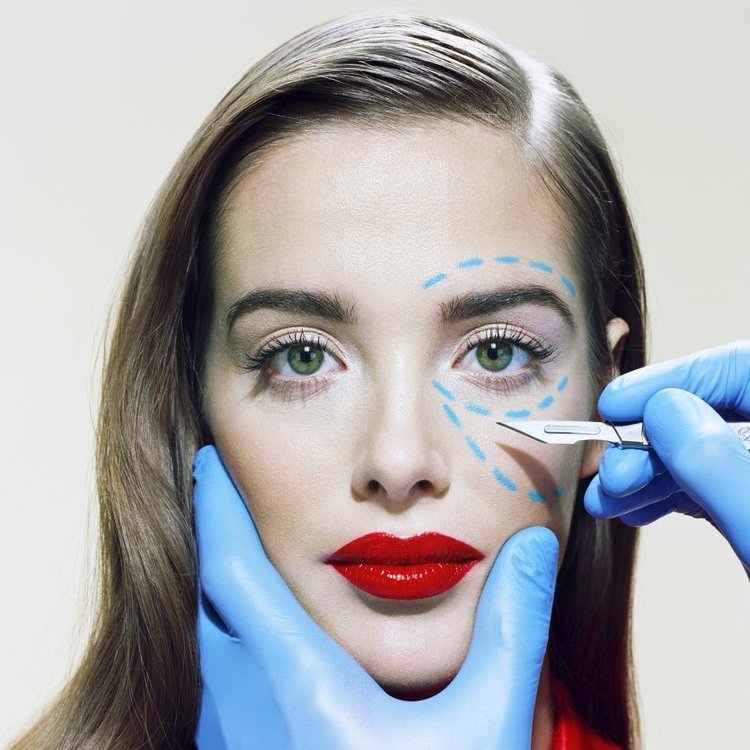The Botched Beauty Standards of Instagram
It seems like you can't scroll through Instagram today without stumbling upon the ‘next best thing' in weight-loss products, or a model thanking her plastic surgeon for a ‘life-changing procedure.' These claims may start sounding convincing no matter who you are, but Instagram is doing its part in protecting us from what's behind the façade. As explained by Instagram's public policy manager Emma Collins, a new policy has been put in place on Facebook and Instagram to discover "where to draw the line, when something's not illegal, but it's not fine" in the realm of paid promotions.
This new policy will do two things: restrict users under eighteen from viewing content that advertises diet products or procedures, and remove posts featuring "miraculous claims." As explained in an article with Elle UK, a miraculous claim could be considered anytime an influencer credits a diet product for their rapid weight loss. In reality, these promoters have access to more resources than the average consumer. Jennifer Maeng, a well-known nutritionist, explains that taking recommendations from an influencer is not "comparing apples to apples."
Body-positivity activists, like actress Jameela Jamil, consider Instagram's response a step in the right direction. Due to her struggles with eating disorders, Jamil has been outspoken in her fight against the promotion of weight-loss products. Her campaign, I Weigh, aims to focus on "achievements and attributes" rather than appearances. Its creation is a response to the increase of mental health issues in teenagers, presumably due to the unattainable beauty standards promoted on social media.
Not only has she spoken with Instagram to enact this policy, but Jameela Jamil also has not been afraid to call out celebrities on their promotions. In March, Jamil publicly encouraged Khloe Kardashian to "be smarter" than promoting non-FDA approved brands, in this case, Flat Tummy Co., to her impressionable audience. Jamil also criticized Kim Kardashian for advertising appetite-suppressing lollipops, calling her mother Kris Jenner an "exploitative but innovated genius" in the process.
It's hard to avoid talking about the Kardashian family in general, but it's nearly impossible when this topic is brought up, due to their frequent promotional posts and constant plastic surgery rumors. According to their ‘momager' Kris, the Kardashian women can make around six figures for each sponsored post. Unfortunately for their paycheck, Instagram reported that the Kardashian-Jenners are not immune to this new policy. Ryan Broderick, a reporter for Buzzfeed, found that one of Kim Kardashian's promotional posts from January can now only be viewed by users above the age of eighteen.
While Instagram's new policy is an effort in the "revolution against shame," as Jameela Jamil puts it, why did the platform wait until now? Already in 2017, a report done by the Royal Society for Public Health named Instagram as the most negative form of social media, with body image being one of the most significant issues. Along with that, a scientific study found a link between orthorexia Nervosa, a condition related to anorexia, and Instagram usage.
These promotions not only cause concern regarding mental health but have a string of side effects tacked onto them as well. Let's take a look at detox teas, a heavily promoted product that frequents my Instagram explore page. The teas rid the body of water, rather than toxins, leaving its user dehydrated. Hidden in the ingredient lists can be illegal chemicals that are designed to give you energy but can lead to fatal outcomes. Because the average, especially teenage, consumer doesn't research these products. it can lead to more harm than good.
Dr. Ysabel Gerrard, an expert who worked with Instagram to formulate this policy, puts it's perfect when she says it's "a step in the right direction" and will "be a positive force for the war on bodies." While this has been a long-awaited change, there is only so much Instagram can do before we start holding the promoters accountable. We call people influencers for a reason, and their impact is seen in statistics- 70% of 18-24 year-olds consider cosmetic surgery and nine out of 10 teenage girls admit to having poor body image. Encouraging an age group who are easily swayed and desperate to belong is, frankly, irresponsible. Now that Instagram has done its part, we need to do ours.
Strike Out,
Writer: Haley Hauk-Landon
Editors: Giselle Parks and Savannah Tindall
Tallahassee





